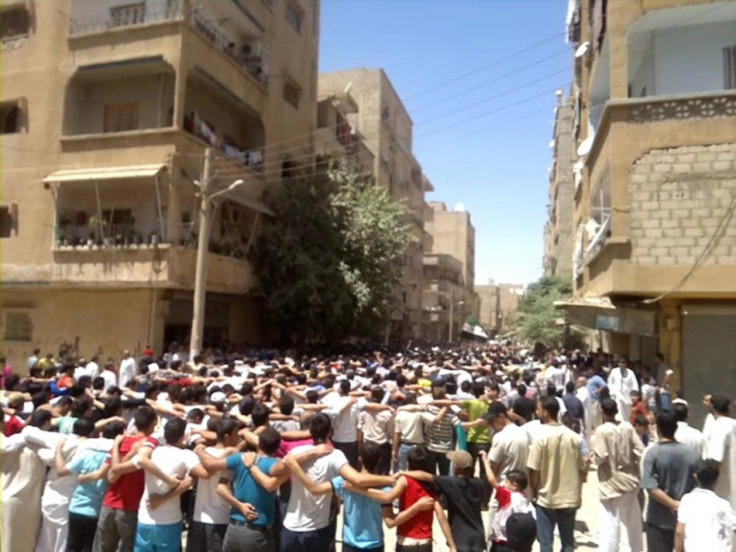Russia Printing Money For Cash-Strapped Syria: Report

Helicopter gunships aren't the only things Russia is giving Syria; now the Kremlin is printing money for the cash-strapped Damascus regime. But whereas the former makes Assad's regime stronger militarily, the latter may be contributing to an inflation rate that is now more than 30 percent.
Reuters reports that the Syria regime, desperate to finance its fiscal deficit, has released new cash, printed in Russia, into circulation in trial amounts in the capital and Aleppo.
[The Russians] sent sample new banknotes that were approved, and the first order has been delivered. I understand some new banknotes have been injected into the market, Reuters reported, citing an anonymous banker in Damascus.
The new notes were being used not just to replace worn-out currency but to ensure that more than 2 million state employees' salaries and other government expenses were paid, four bankers told Reuters.
You cannot allow the public sector to collapse, said one of the bankers, pointing to Syria's record-setting $27 billion 2012 budget.
Outgoing Finance Minister Mohammad al-Jleilati said last week that Syria had discussed printing banknotes with Russian officials during economic talks at the end of May in Moscow and said a deal was almost done. But the central bank later denied through state media that new currency had been circulated.
Syrian money was previously printed in Austria by Oesterreichische Banknoten und Sicherheitsdruck GmbH, a subsidiary of the Austrian central bank. That order was suspended last year because of European Union sanctions, an Austrian central bank spokesman told Reuters.
Russian firms are not barred from printing money for Syria. As Syria's major political backers and a close trading and economic partner, Russia is seen as Syria's last resort to pump new notes into the system and pay down the deficit.
However, Russia's good intention might bear bitter fruits.
The international sanctions and 15 months of political unrest in the country have wiped out Syria's revenues and have left the country with tremendous inflationary pressures.
Oil Minister Sufian Alao told the official Syrian Arab News Agency on April 30 that the country's exports have slumped since the European Union decided to stop importing Syrian crude oil last year, costing the country $3 billion in revenue.
Other signs of distress are also evident. Deposits at Syrian banks -- Bank of Syria & Overseas, Bank Audi Syria and Banque Bemo Saudi Fransi -- fell by an average of 35 percent in 2011, according to April filings to the Damascus Securities Exchange. During that period, lending dropped 22 percent.
Creating more money out of the blue would only worsen the scenario. As economists like to say, inflation stems from too much money chasing too few goods.
Inflation rate in Syria rose to 31.5 percent in April, compared with the same month a year ago, as the cost of food products increased, according to the government's Central Bureau of Statistics.
Syria's economy contracted 3.4 percent in 2011 largely due to the unrest and is expected to shrink by 8.1 percent in 2012, the Economist Intelligence Unit estimates.
However, reckless printing of money as a way of buying short-term reprieve could be economic suicide, a banker told Reuters.
© Copyright IBTimes 2025. All rights reserved.






















